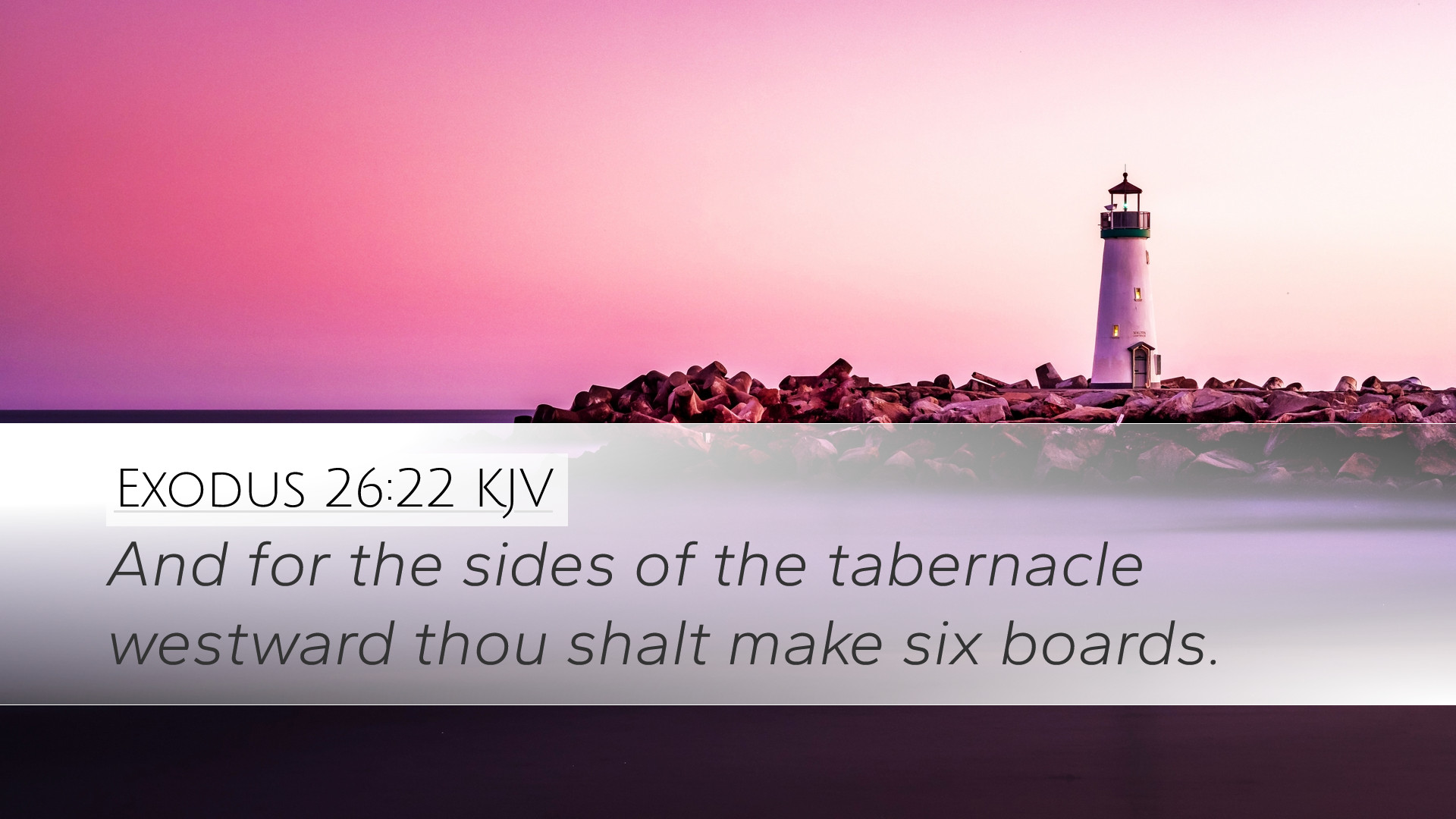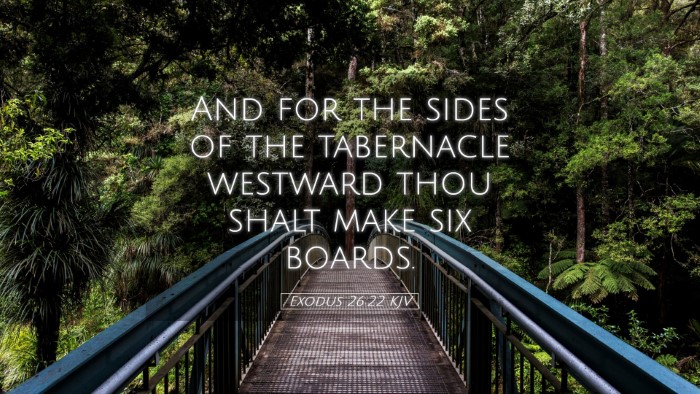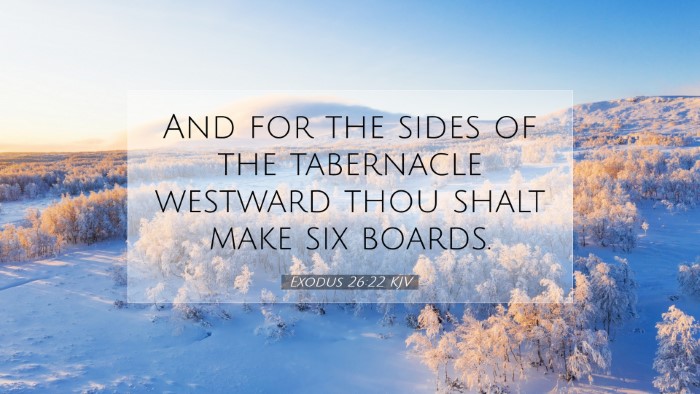Commentary on Exodus 26:22
Exodus 26:22 states: "And for the second side of the tabernacle, the north side, there shall be twenty boards." This verse comes from the description of the construction of the Tabernacle, a significant subject within the book of Exodus. Understanding this passage requires delving into various commentaries that expound on its theological, historical, and practical implications.
The Importance of the Tabernacle
The Tabernacle represents God's dwelling place among His people. It serves as a literal meeting point between God and humanity, highlighting God's desire to reside in the midst of His people. The construction details offer profound insights into His holiness and the prescribed order in worship.
Insights from Matthew Henry
Matthew Henry emphasizes the meticulous nature of the Tabernacle's construction. Each board and curtain has profound spiritual significance:
- Symbol of Stability: Henry notes that the boards represent God's unshakable presence. Their arrangement signifies the structure's strength and stability.
- Holiness of God: The number and position of the boards indicate the holiness required in approaching God. Each board's placement serves as a reminder of the reverence due to the divine.
- Unity of the People of God: The structure unites the tribes of Israel, reflecting the collective worship that should arise from a community dedicated to God.
Considerations from Albert Barnes
Albert Barnes provides detailed insights into the architectural and symbolic significance of the Tabernacle's design:
- Materials Used: Barnes discusses the materials (acacia wood and gold) as symbols of endurance and divine glory. The use of acacia wood, which is durable and resistant to decay, illustrates God's lasting covenant with Israel.
- Divine Instructions: Emphasis is placed on God's specific instructions in the construction process, which demonstrates the importance of obedience to God's commandments in worship.
- Typology of Christ: Barnes suggests that the Tabernacle foreshadows the coming of Christ, who would be the ultimate dwelling place of God among humanity. The boards, arranged in such a way, prefigure Christ's body broken for humanity.
Adam Clarke's Observations
Adam Clarke offers a nuanced view of the implications of this verse in the narrative of the Exodus:
- Church as a Tabernacle: Clarke draws parallels between the Tabernacle and the present-day church, suggesting that just as God resided in the Tabernacle, He now dwells among believers collectively.
- Perfection in Design: The perfect design and execution reflect the infinity of God’s wisdom and grace. Clarke asserts that every detail had a purpose that reflects divine order.
- Spiritual Journey: The journey of setting up the Tabernacle mirrors the spiritual journey of believers, emphasizing the process of entering into God's presence through Christ.
Theological Implications
Theologically, Exodus 26:22 encapsulates critical themes of God's presence, holiness, and community. The physical structure of the Tabernacle reflects a deeper spiritual reality that:
- God's Initiative: This building project was initiated by God, demonstrating that He takes the first step toward restoration and relationship with His people.
- God's Holiness: The careful attention to the Tabernacle's structure signifies that access to God requires purity and reverence, setting the stage for the sacrificial system ordained in the Law.
- Community Worship: The communal aspect of its design communicates that worship is not an isolated act but a collective response to God as His people gather in His name.
Practical Applications for Today
For modern readers, particularly pastors and theologians, the principles embedded in Exodus 26:22 can yield rich applications:
- Attention to Detail in Worship: Just as God prescribed every detail for the Tabernacle, we ought to be mindful of how we worship today, ensuring that our services are aligned with God’s revealed will.
- Communal Aspect of Faith: This verse calls us to gather as a community of believers, recognizing that worship is not merely individual but a collective expression of our faith.
- Seeking God's Presence: The pursuit of God’s presence should be at the heart of our ministry efforts, mirroring the Tabernacle’s purpose in the camp of Israel.
Conclusion
In summary, Exodus 26:22 serves as a reminder of the reverence and order required in approaching God. Each board represents a fundamental aspect of God's relationship with His people, culminating in a profound understanding that God desires to dwell among us even today. The collective insights from Henry, Barnes, and Clarke highlight the multifaceted significance of this passage, providing a rich tapestry of theological depth for reflection, study, and teaching.


